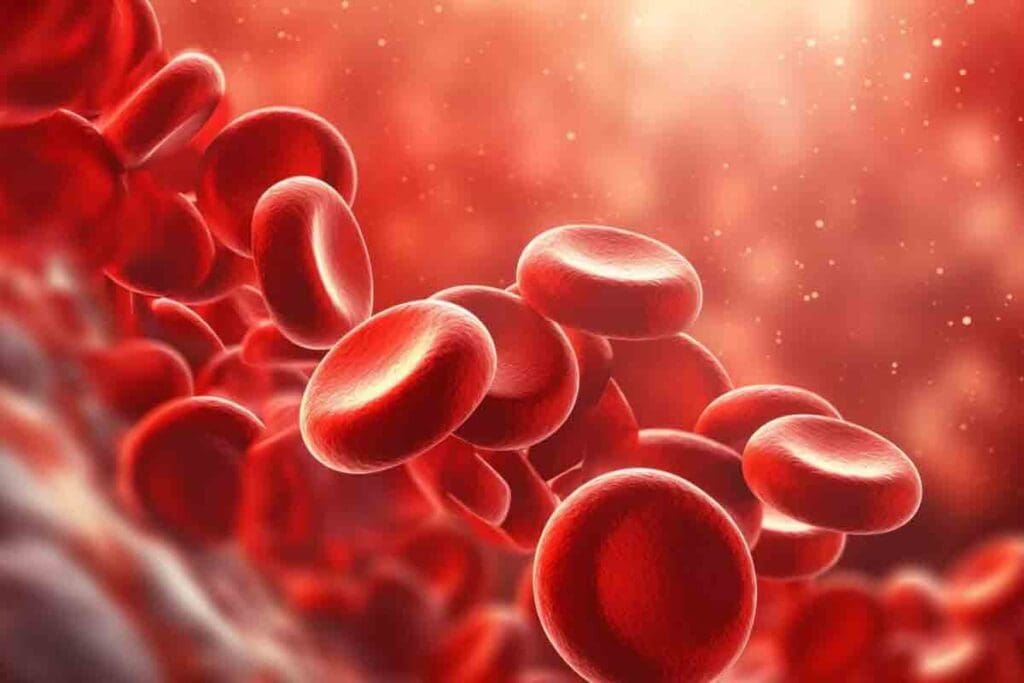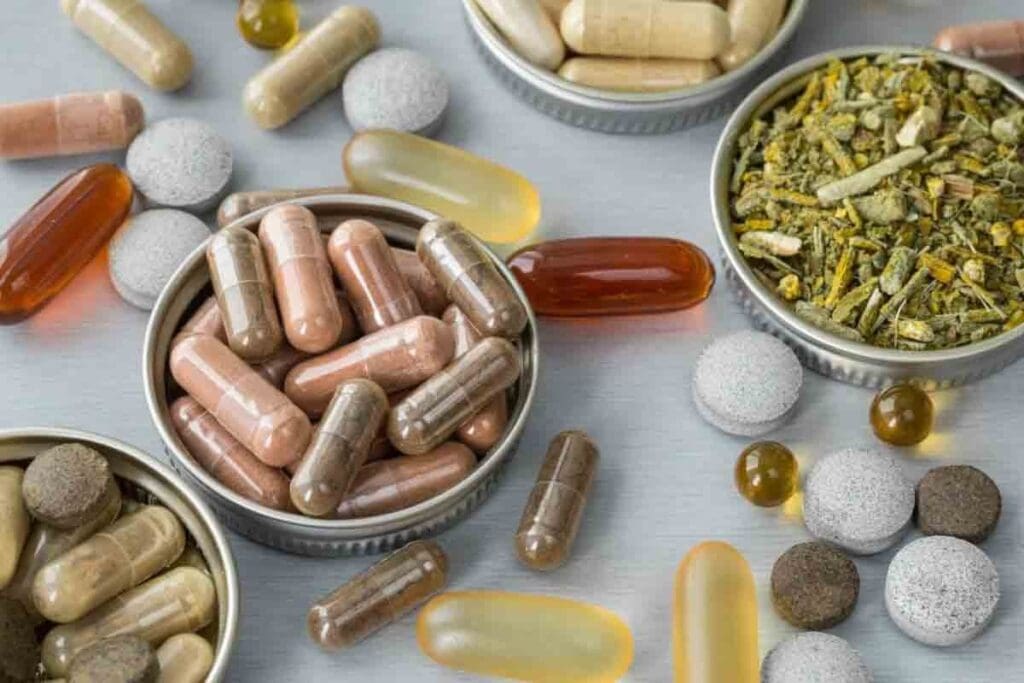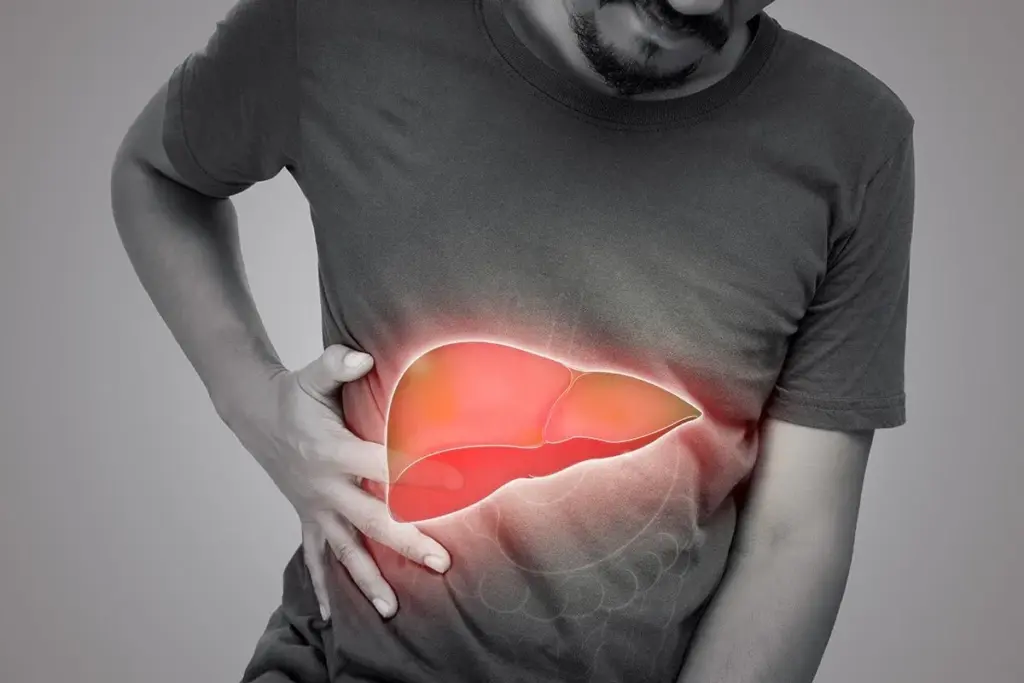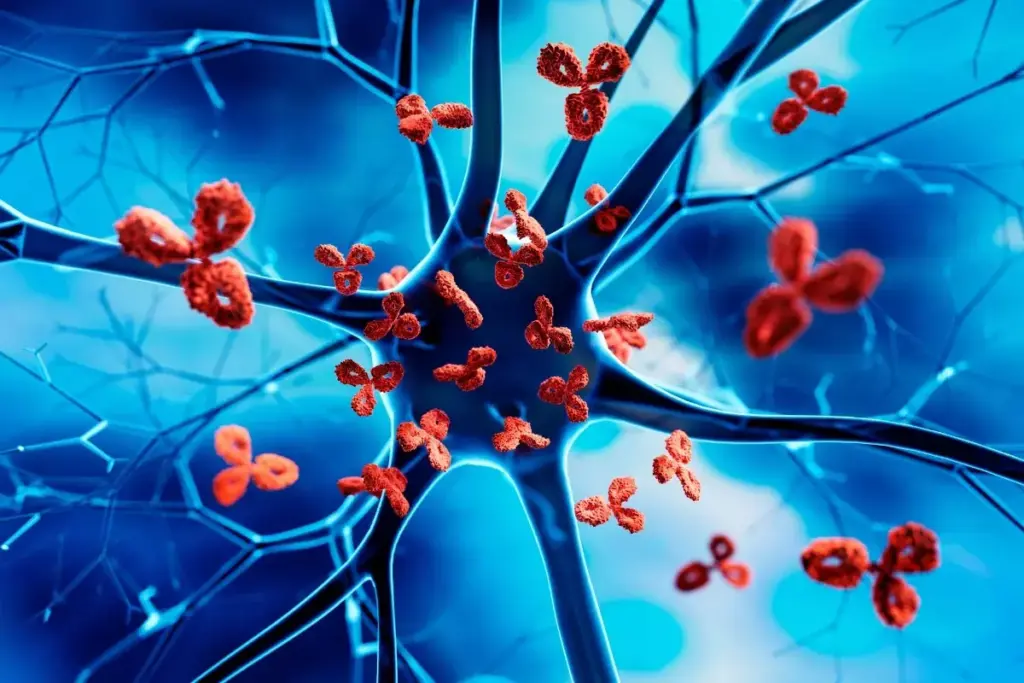
Iron deficiency anemia affects millions worldwide, and effective iron supplements are essential for treatment. At Liv Hospital, we recommend slow-release iron formulations as the best iron supplements anemia for fewer gastrointestinal side effects such as nausea, constipation, and stomach pain, making them gentler and more tolerable. Iron is vital for blood oxygen transport, energy production, and immune support. Choosing a supplement that balances effectiveness with minimal side effects supports better adherence to therapy. Avoid taking iron with calcium or antacids, which impair absorption. Consult healthcare professionals for proper dosing to prevent complications like iron overload. This balanced approach ensures optimal anemia management.
Key Takeaways
- Slow-release iron supplements can reduce side effects.
- Iron is essential for oxygen transport and energy production.
- Gentle and effective iron supplements are available over the counter.
- Choosing the right iron supplement is key for anemia treatment.
- Liv Hospital recommends evidence-based iron therapy options.
Understanding Iron Deficiency and Anemia
Iron deficiency anemia happens when the body doesn’t have enough iron. This is needed to make hemoglobin, a key protein in red blood cells. It’s a big health issue worldwide, hitting women over 40, pregnant people, and those on special diets.

Common Symptoms of Iron Deficiency
Spotting iron deficiency symptoms early is key. Look out for fatigue, weakness, pale skin, and shortness of breath. Severe cases might bring dizziness, headaches, and trouble fighting off infections.
These signs can really mess up your day. Knowing what they mean and when to see a doctor is important. If you’re seeing a few of these signs, get checked out by a healthcare pro.
Who Is at Risk for Iron Deficiency Anemia
Some groups face a higher risk of iron deficiency anemia. Menstruating women lose iron each month, and pregnant individuals need more for the baby. Also, those on restricted diets, like vegetarians or vegans, might not get enough iron from animal sources.
| At-Risk Group | Reason for Increased Risk |
| Menstruating Women | Monthly blood loss |
| Pregnant Individuals | Higher demand for iron |
| Vegetarians/Vegans | Lower intake of heme iron |
The Role of Iron Supplements in Treatment
Iron supplements are key in treating iron deficiency anemia. They help top up the body’s iron. The best iron supplements are gentle on the stomach and absorb well. Women over 40 often find these supplements helpful.
When picking an iron supplement, think about the iron type, extra nutrients for better absorption, and possible side effects. Some have slow-release technology to ease stomach issues, making them better for long-term use.
Best Over-the-Counter Iron Supplements for Anemia
The market has many over-the-counter iron supplements for anemia. They come in various forms, each with its own benefits and how well they are absorbed. We’ll look at some top choices to help you decide.
1. Slow Fe Slow Release Iron
Slow Fe is a well-known brand for slow-release iron supplements. These tablets slowly release iron, which helps avoid stomach problems. Slow Fe is gentle on the stomach, great for those who get sick or are uncomfortable with other iron supplements.
2. Vitabiotics Feroglobin
Vitabiotics Feroglobin is a popular slow-release iron supplement. It has iron and important nutrients like vitamin C, B12, and folic acid. Feroglobin is designed to be gentle on the stomach and helps fight anemia.

3. Nature Made Iron Ferrous Fumarate
Nature Made is a trusted name in supplements, and their Iron Ferrous Fumarate is highly absorbable. Ferrous fumarate is known for its high iron content and is good for iron deficiency anemia. It’s free from artificial colors and flavors, making it a clean choice.
4. MegaFood Blood Builder
MegaFood Blood Builder is a complete iron supplement with iron, vitamin C, and B vitamins. It supports healthy red blood cell production. MegaFood is known for using high-quality, food-based ingredients, making it effective and gentle on the stomach.
These iron supplements are among the best over-the-counter options for managing anemia. When picking an iron supplement, think about absorption rate, extra nutrients, and side effects. Always talk to a healthcare professional before starting any new supplement.
What Makes These Iron Supplements Effective for Anemia
Iron supplements work well against anemia for several reasons. We’ll look into these to see how they help.
Slow-Release Technology and Reduced Side Effects
Slow-release technology is key in iron supplements. It slowly releases iron into the blood, avoiding harsh side effects. “Slow-release iron supplements can minimize adverse reactions while maintaining therapeutic efficacy,” studies show. This makes it easier for people to stick with their treatment.
For those who can’t handle regular iron, slow-release is a game-changer. It offers a gentler way to manage anemia.
Different Forms of Iron and Their Absorption Rates
The type of iron matters a lot. Iron comes in forms like ferrous fumarate, iron bisglycinate, and ferrous sulfate. Each has its own strengths and weaknesses.
Key Forms of Iron and Their Characteristics:
- Ferrous Fumarate: High iron content, good absorption rate
- Iron Bisglycinate: Gentle on the stomach, highly bioavailable
- Ferrous Sulfate: Commonly used, but may cause more gastrointestinal side effects
Additional Nutrients That Enhance Iron Absorption
Other nutrients can also boost iron absorption. Vitamin C, found in citrus fruits and bell peppers, is a great example. It helps iron from plant sources get absorbed better.
“Vitamin C can enhance non-heme iron absorption, making it a valuable adjunct to iron supplementation.”
-Dieticians note
Folate and vitamin B12 are also important. They help manage anemia caused by their deficiencies. Getting enough of these nutrients supports blood health.
Choosing the Right Iron Supplement for Different Needs
Finding the right iron supplement depends on many factors. These include age, gender, and health status. We’ll look at the best choices for women over 40, men, and those with special dietary needs.
Best Iron Supplements for Women Over 40
Women over 40 often see changes in iron levels during menopause. Gentle iron supplements are recommended for these women. Nature Made Iron is a good choice because it’s gentle yet effective.
Most Effective Iron Supplements for Men
Men need iron supplements that are easily absorbed. Slow-release iron supplements like Slow Fe are great. They help avoid digestive problems.
Clean Iron Supplements Without Allergens
People with allergies or sensitivities need iron supplements without common allergens. MegaFood Blood Builder is a clean option. It’s made with natural ingredients and doesn’t contain major allergens.
Iron Supplements That Don’t Cause Constipation
Some iron supplements are designed to prevent constipation. Vitabiotics Feroglobin is a good example. It includes extra nutrients to help avoid this side effect.
| Supplement Type | Target Group | Key Features |
| Nature Made Iron | Women Over 40 | Gentle on the stomach, effective |
| Slow Fe | Men | High bioavailability, slow-release |
| MegaFood Blood Builder | Individuals with Allergies | Free from common allergens, natural ingredients |
| Vitabiotics Feroglobin | Those Prone to Constipation | Reduces risk of constipation, additional nutrients |
How to Maximize the Benefits of Your Iron Supplement
To get the most out of iron supplements, you need to consider timing, diet, and managing side effects. Knowing these factors can boost your iron supplement’s effectiveness and improve your health.
Optimal Timing for Taking Iron Supplements
When you take iron supplements can affect how well your body absorbs them. It’s best to take them on an empty stomach to avoid food interference. But, if you get stomach upset, a small amount of food might help.
Best Practices for Taking Iron Supplements:
- Take iron supplements at the same time every day for consistency.
- Avoid taking iron with foods or supplements high in calcium, as it can block absorption.
- Consider taking your iron with vitamin C, like orange juice, to improve absorption.
Foods and Beverages That Enhance or Inhibit Absorption
Some foods and drinks can help or hinder iron absorption. Knowing which ones can help you get the most from your iron supplements.
| Food/Beverage | Effect on Iron Absorption |
| Vitamin C-rich foods (e.g., citrus fruits, strawberries) | Enhances absorption |
| Calcium-rich foods (e.g., dairy products, fortified plant-based milk) | Inhibits absorption |
| Tea and coffee | Inhibits absorption |
| Foods high in phytates (e.g., whole grains, legumes) | Inhibits absorption |
Managing Common Side Effects
Iron supplements are usually safe, but some people might get side effects like constipation or stomach upset. It’s important to manage these to keep taking your supplements.
Tips for Managing Side Effects:
- Start with a low dose and gradually increase to ease stomach upset.
- Take your iron with food to reduce stomach irritation.
- Drink plenty of water and eat a balanced diet to prevent constipation.
When to Expect Results from Iron Supplementation
How soon you see improvements from iron supplements varies. It depends on how severe your deficiency is and how well the supplement works. You might start feeling more energetic and overall better in a few weeks.
Timeline for Expected Results:
- 1-2 weeks: You might start feeling more energetic.
- 4-6 weeks: You’ll likely see better hemoglobin levels.
- 3-6 months: You’ll see big improvements in your health and less anemia symptoms.
Conclusion
Choosing the right iron supplement is key for those with iron deficiency anemia. We’ve looked at the top over-the-counter options. These include their benefits, types, and any possible side effects.
Iron supplements are vital for treating anemia. Options like Slow Fe Slow Release Iron and Vitabiotics Feroglobin are gentle yet effective. For quicker relief, fast-absorbing supplements like Nature Made Iron Ferrous Fumarate and MegaFood Blood Builder are good choices.
When picking the best iron supplement, think about slow-release technology and different iron forms. Also, look for supplements with extra nutrients to help iron absorption. This way, you can make a smart choice for your treatment and better your life.
Always talk to a healthcare professional before starting any supplement. This ensures the iron supplement you choose fits your needs and health goals.
FAQ
What are the best iron supplements for anemia?
For anemia, slow-release iron supplements, ferrous fumarate, and iron bisglycinate are top choices. They are gentle on the stomach and reduce side effects.
What is the best slow-release iron supplement?
Slow Fe is a top pick for slow-release iron. It helps avoid nausea and stomach discomfort.
Which iron supplement is best absorbed?
Iron bisglycinate is known for its high absorption rate. It’s also gentle on the stomach.
What are the best iron tablets to take for anemia?
Ferrous fumarate and iron bisglycinate are great for anemia. They are absorbed well and easy on the stomach.
Are there any iron supplements that don’t cause constipation?
Yes, iron bisglycinate is less likely to cause constipation. It’s a gentle and easily absorbed formula.
What is the best iron supplement for women over 40?
Women over 40 should look for iron supplements designed for them. Slow-release iron or supplements with vitamin C are good options.
What is the best iron supplement for men?
Men should choose iron supplements with high elemental iron. Ferrous fumarate is a good choice that’s gentle on the stomach.
How can I maximize the benefits of my iron supplement?
To get the most from your iron supplement, take it at the right time. Avoid foods and drinks that block absorption. Also, manage any side effects.
When can I expect results from iron supplementation?
Iron supplement results vary. Most people see improvements in iron levels and symptoms in a few weeks to months.
Are there any clean iron supplements without allergens?
Yes, some iron supplements are labeled as “clean” or “hypoallergenic.” They are free from common allergens and good for sensitive stomachs or dietary restrictions.
Can I take iron supplements with other medications?
Always check with your healthcare provider before mixing iron supplements with other medications. They may interact or worsen health conditions.
References
- Institute of Medicine. (2001). Dietary Reference Intakes for Vitamin A, Vitamin K, Arsenic, Boron, Chromium, Copper, Iodine, Iron, Manganese, Molybdenum, Nickel, Silicon, Vanadium, and Zinc. In the NCBI Bookshelf. https://www.ncbi.nlm.nih.gov/books/NBK222309/










